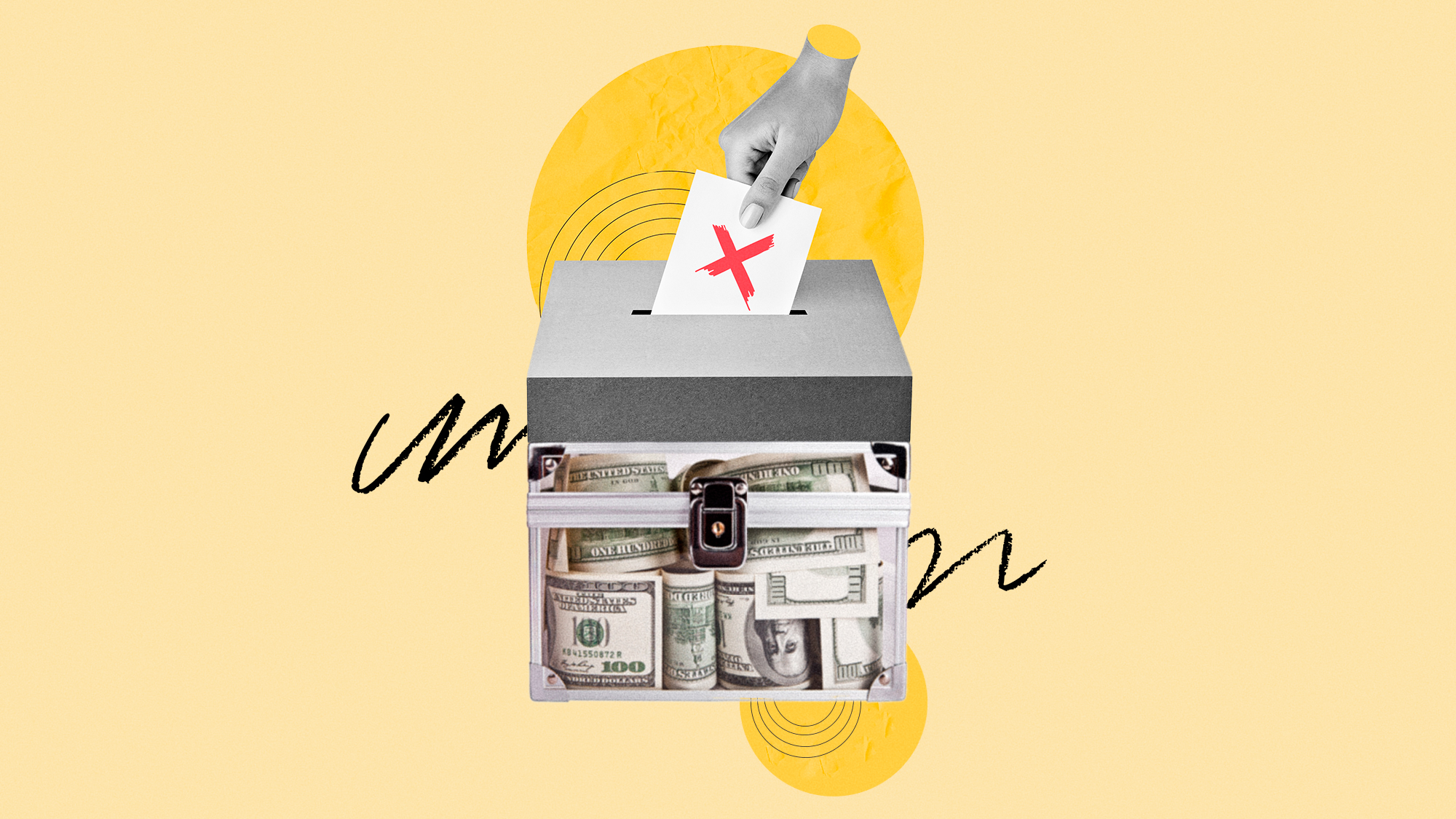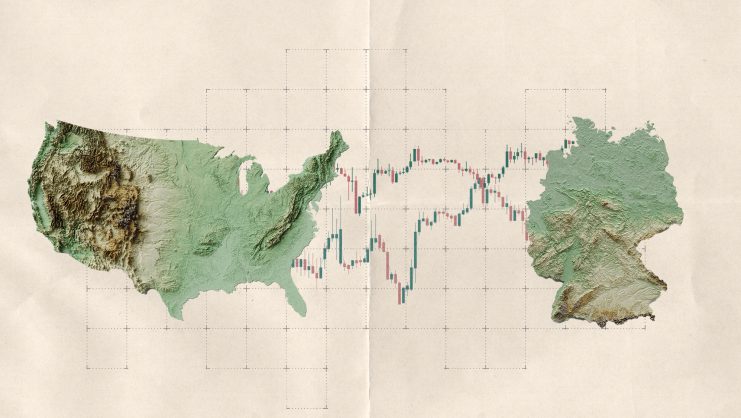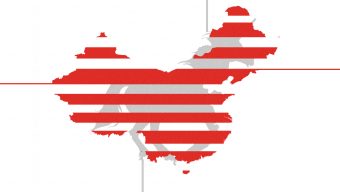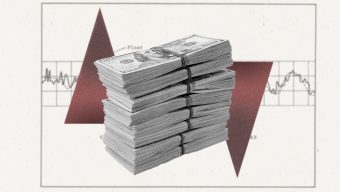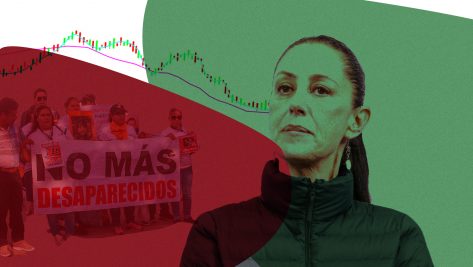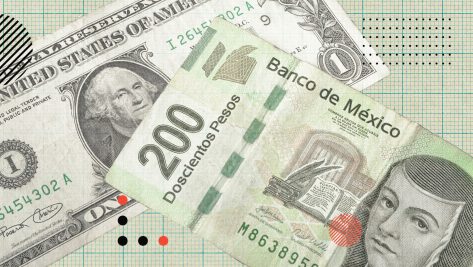When travelers approach the shrine of Apollo at Delphi, they are met with the following maxim: “Nothing in excess.” This wise, simple sentence opens Martin Wolf’s new book The Crisis of Democratic Capitalism.
Wolf is the chief economics commentator at the Financial Times and one of the most authoritative voices in international economic analysis. In this book, he advocates redressing the balance in both democratic political systems and the market economy, and he argues that we need to swim against the tide of the major economic powers to achieve this goal. In an interview with El País, Wolf explains that “bringing back liberal democracies, if at all possible, would require a colossal effort on the part of the State” and that, “many more taxes will need to be paid to finance more education, more healthcare and more public services, which are the true levers that level the playing field for citizens.”
In this book, Wolf invites us to reflect on why the marriage between democracy and capitalism is weakening and how to resolve the issue. He is convinced that the two sides “need each other” and this is the central theme of the book. Wolf does not hesitate to confess that his opinions “have altered as the world has unfolded” and that “those who have not changed their opinions over a lifetime do not think.” However, his values “have not altered.” The reason behind the book is that Wolf is a self-proclaimed pessimist, unhappy with the way the world is moving forward. In the 20th century, humanity was narrowly saved from terrible dictators (Adolf Hitler, Mao Zedong, Josef Stalin, Pol Pot, Kim Il Sung, Fidel Castro, etc.) and Wolf is concerned that in the 21st century we will be incapable of preventing the excesses of today’s dictators who, while perhaps not as monstrous as those that came before, are still capable of seriously damaging democracy and the economy, naming Xi Jinping, Vladimir Putin, Donald Trump, Jair Bolsonaro, Recep Tayip Erdogan, and Viktor Orbán. “The health of our societies depends on sustaining a delicate balance between the economic and the political, the individual and the collective, the national and the global.” (p. 17)
Capitalism and democracy, a marriage of convenience
The first of the four-part book is entitled “On Capitalism and Democracy,” with the opening section graphically labeled “Symbiotic twins: politics and economics in human history.” It is clear that Wolf is a liberal who believes in the collective, and he goes so far as to state that “capitalism cannot survive in the long run without a democratic polity, and democracy cannot survive in the long run without a market economy.” (p. 28)
The author uses a provocative metaphor: the partnership between democracy and capitalism is an unhappy marriage, but at the same time, it is a marriage of convenience. The excessive concentration of economic power in a few hands (plutocracy) is a risk to democracy. If there are no economic opportunities, citizens risk being seduced by populism, both on the right and the left. Therefore, capitalism and democracy need equality to coexist. “As both Plato and Aristotle noted, great inequality conflicts with the egalitarian premises of democratic government. This makes plutocracy—a system neither of these philosophers favored—a threat to democracy.” (p. 51)
The second section of part one is entitled “The Evolution of Democratic Capitalism”. Here Wolf reviews the history of liberal democracy and capitalism, and he also comments on globalization, concluding that democracy and capitalism have changed considerably in the last two centuries. More people have the right to vote, and capitalism has become more complex. “The interplay between democratic governments and market capitalism has shaped both.” (p. 90) Meanwhile, capitalism has become global, taking advantage of falling transportation and communication costs – and the rise of capitalism has coincided with periods of greater democratization around the world.
It is the final paragraph of this section, however, the most interesting and disturbing, as it reflects Wolf’s pessimism about the future: “the present condition of Western liberal democracy is deeply worrying. That is in part due to economic failures—slow growth, rising inequality, loss of good jobs. Once again, liberal democracy and global capitalism need to be saved together.” (p. 105)
Populism and “rentier capitalism”
“What Went Wrong” is the title of the second part of the book and it begins with a chapter taken from Bill Clinton’s 1992 presidential campaign: “It’s the economy, stupid.” According to Wolf, the crisis of legitimacy of Western democratic regimes comes precisely from the economy. In fact, the social status and living conditions of large parts of the population have worsened, and this explains post-democratic authoritarianism, also known as populism. It also explains Donald Trump’s victory in 2016, as “things had been going badly for too many for too long to make such confidence credible. In the absence of any confidence in a progressive revolution, the politics of reactionary nostalgia had arrived.” (p. 126)
The second section is entitled “Rise of Rentier Capitalism.” In addition to inequality, the lack of economic opportunity for many, another cause of the current malaise is what Wolf calls “rentier capitalism.” This is the fact that “a relatively small proportion of the population has successfully captured rents from the economy and uses the resources it has acquired to control the political and even legal systems, especially in the US, the world’s most important standard-bearer of democracy.” (p. 183)
Why has this happened? Because “the combination of new technology with laissez-faire ideology has accelerated the emergence of a plutocracy dedicated to increasing its wealth and power and of new technologies with extraordinarily destructive potential.” He calls these promoters of new technologies “rentiers”. It is a digital world of zero marginal costs using technology platforms, social networks, and big data to dominate global markets. In short, a handful of winners with strong monopoly positions seem capable of shaping both the present and the future. The result is, and here Wolf refers to Thomas Philippon’s book, The Great Reversal, that “US markets have become less competitive: concentration is high in many industries, leaders are entrenched, and their profit rates are excessive. Second, this lack of competition has hurt US consumers and workers: it has led to higher prices, lower investment, and lower productivity growth.”
Wolf sees the digital giants as the main villains here; the profits of the big technology companies—Amazon, Apple, Google, Facebook, and Microsoft—are in large measure due to monopoly rent.” We could also add X, Instagram, Alibaba, Tik Tok, and WhatsApp to the list.
Part two ends with the chapter, “Perils of Populism.” At this juncture in history, there is little doubt about the upsurge of this phenomenon, which has brought populist leaders to power over the last decade in key countries such as Turkey, Russia, India, China, and Hungary, to cite just a few examples. According to Wolf, this political succession of black swans (a Latin expression coined by the Roman poet Juvenal) is a combination of two ingredients: toxic individualism and authoritarian populism. And it can lead to a dystopian situation: less democracy and less economic growth. In fact, populist and protectionist policies (as was Trump’s America First) do not usually work.
A “new” New Deal
In the third part, “Renewing Democratic Capitalism,” the author brings a less somber tone as he attempts to outline solutions. He begins with a section entitled “Renewing Capitalism,” in which he suggests changes through an interventionist liberal like Keynes. He indicates that political leadership is needed to bring our societies to a middle ground between the status quo and revolutionary upheaval, i.e., reform. He points out that there are excellent precedents on which to base this social change: Winston Churchill, Franklin Delano Roosevelt, and William Beveridge (author of the report that gave rise to the welfare state). According to Wolf, the goal is “careful and intelligent reform aimed at bringing substantial improvement to most people’s lives.” (p. 241)
In “Toward a “new” New Deal” Wolf attempts to explain precisely how to improve most people’s lives, based on an updated version of Roosevelt’s aspirations for the twenty-first century. These are:
- A rising, widely shared, and sustainable standard of living
- Good jobs for those who can work and are prepared to do so
- Equality of opportunity
- Security for those who need it
- Ending special privileges for the few (p.242-243)
This is an ambitious program of social policies that must be complemented by liberal orthodoxy: macroeconomic stability, innovation, investment, and free trade.
The third section of this third part has a promising title: “Renewing Democracy.” It begins with a famous quote from Churchill: “(…) democracy is the worst form of government – except for all the others that have been tried from time to time.” This is not true for everyone, especially if we consider that a considerable percentage of the population is unfamiliar with history, has only lived in a democracy and is highly dissatisfied with the lack of job opportunities, access to housing, and other consumer goods.
On paper, the situation looks better than it did in the 20th century. In this respect, a comparison of today’s ills with those of the first half of the previous century is particularly enlightening. Germany lost two wars, millions of men, an empire, and a currency. At the height of the Great Depression in the 1930s, a quarter of the workforce was unemployed. It is true to say that in the first two decades of the 21st century, the developed world has suffered three global economic crises: the financial, lockdown, and energy crises. Yet it has tackled them with better economic policies and social safety nets than it did in the 1930s. Inequality has not increased much since 2000 and per capita income has risen in all but a few places.
However, citizens’ perceptions have been different. The 2008 global financial crisis was, in effect, a “shock” and provided fertile ground for populist parties. Wolf, therefore, sees a number of areas where democracy is at stake: a) identity politics, b) the role of the media and social networks, and c) the management of immigration. “Countries that fail to control immigration in a politically and socially acceptable manner risk a serious backlash.” He is in favor of “restoring democracy” and he stands up for the “necessity of citizenship.”
Wolf ends this section by reminding us that “we must remember that reform is not revolution, but its opposite. It is not just impossible, but wrong, to try to recreate a society from scratch, as if its history counted for nothing. The outcome of such attempts has always been destruction and despotism. Only unbridled power can deliver a revolutionary overthrow of the existing order. But unbridled power is by its nature destructive: it shatters the security on which productive human relations can be based and decent lives lived.”
Conclusion: restoring citizenship
The fourth part is entitled “A Hinge of History.” In its first chapter, “Democratic capitalism in the world”, Wolf defends the model of liberal democracies based on a market economy. He contrasts it with China, also a “capitalist” country, albeit with an authoritarian regime. He analyzes what the relationship between China and the West may become in the next few years, and he recommends “cooperating, confronting and competing with China” (p. 358) to avert a new Cold War.
With the conclusion, “Restoring citizenship,” Wolf argues that the West needs a reset and must firmly embrace the key changes that have taken place in recent decades, such as global warming, information technologies, and the new role of women. He also advocates the “piecemeal social engineering” put forward by Karl Popper. He calls for democracies to be legitimized through widely shared economic prosperity and greater citizen involvement in politics.
Based on the cumulative wisdom of Wolf’s long professional career, Crisis of Democratic Capitalism posits that most of the blame for the weakening of the democratic system is related to poor economic performance. The author invites us to reflect on the fact that we are now in “a moment of great fear and faint hope. We must recognize the danger and fight now if we are to turn that hope into reality. If we fail, the light of political and personal freedom might once again disappear from the world.” (p. 377)
A version of this article was originally published in Spanish in Nueva Revista.
© IE Insights.



